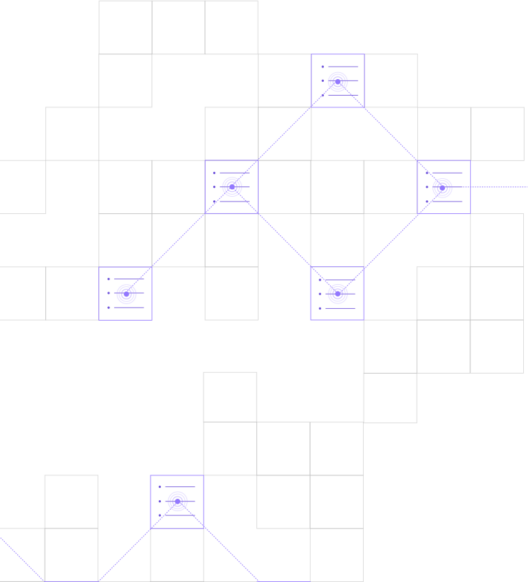Workload Automation
Automic Alternative: Tidal Automation
Looking for an Automic alternative? Tidal workload automation software is preferred by enterprise teams across the world.
Limitations of Automic Automation by Broadcom
Automic Automation is an IT process automation and workload automation solution by Broadcom (formerly CA Technologies). This tool provides features for automating and orchestrating business processes, IT tasks, and application workflows. While Automic Automation offers some benefits, there are potential limitations and drawbacks that teams should consider:

Complex Implementation and Management: Organizations with diverse IT environments and complex workflows have a hard time implementing and managing Automic Automation. Extensive configuration management and customization is usually required.
Steep Learning Curve: This tool can be harder to adopt for new users or administrators unfamiliar with the features. Training and technical aptitude is required to leverage Automic Automation most effectively.
Customization and Integration Efforts: Integrating with legacy systems or proprietary applications requires software development work, taking up important internal resources.
Scalability Challenges: Teams working with extremely high-volumes of transactions between complex environments will experience scalability challenges, especially without proper infrastructure planning.
Expensive Pricing: Automic Automation comes with significant licensing, implementation, and management costs.
Why Tidal Tidal Workload Automation is Better
Tidal provides a unified workload automation solution to centralize management and control of end-to-end enterprise job scheduling processes. Tidal is scalable, resilient, and secure, with the power and functionality to support complex needs and enterprise environments. Teams can run Tidal’s workload automation tools on-premise or in cloud environments, and 40+ built-in integrations make it easy to connect the tools already in use in an organization’s tech stack. Flexible pricing options are designed to fit and scale to the needs of growing companies.
Job Monitoring and SLA Management
With Tidal, companies can seamlessly manage complexities of scheduling across time zones and create an unlimited amount of custom calendars, or choose from popular, self-service calendar templates. Event-action architecture supports both common events, like file transfers, database changes, and SLA activity, as well as more complex events that trigger multiple actions, like starting a job, sending an email or creating notification. Functionality for SLA management and critical path tracking is built directly into the platform to easily define SLA policies for important jobs. Tidal automates real-time monitoring and alerts if jobs are at risk or have missed SLAs.
Tidal’s monitoring enables teams to keep track of scheduling activities and take action when needed. If jobs fail, Tidal can initiate a recovery action, send an email to the job owner, generate a message to the central console, trigger an incident report, and more.
Multiple User Interfaces for Viewing Data
Information can be displayed in various view formats and user interfaces including dashboards, graphical views, and grid views.
Automation Designed for Software Development
A full API and CLI paired with adapters for SSH and Web Services, Tidal enables software devs to easily integrate applications into enterprise workflows. APIs and connectors provide extensibility and high availability.
Teams will love how easily Tidal integrates with the continuous integration and continuous delivery pipelines, automates release management, and more. Helping with a wide variety of use cases, Tidal optimizes batch processing, mainframe job scheduling, data integration, big data processing, retrieving data from web services, ETL, job scheduling for ERP systems, and more.
Advanced Workflow Orchestration
Advanced workflow orchestration functionality manages complex workflows and streamlines IT and digital business tasks. Tidal enables business process automation across multiple systems and environments, both cloud-based and on-prem.
Self-Service Features
Tidal empowers users with self-service capabilities to create job templates, schedule jobs, and more, and ensure only authorized users complete these actions. Optimization of resource allocation maximizes infrastructure stability across servers, databases, networks, data pipelines, and storage systems.
Integrations with Tech Stack Tools
The integrations offered by Tidal are numerous, including job scheduling for AWS cloud compute instances and storage resources.
- AWS integration: Adoption of AWS only continues to grow, so Tidal supports integrations to orchestrate workflows for AWS processes, consumptions, services, and storage.
- Microsoft integration: Enterprise tech stacks often include Microsoft solutions, so Tidal offers a variety of pre-built integrations for Microsoft workflows.
- SAP integration: Tidal offers a comprehensive suite of adapters for SAP solutions to cover SAP legacy and newer tools including SAP NetWeaver, SAP HANA/4HANA, and ABAP and Java tech stacks.
Enterprise Process Use Cases
With Tidal, organizations can encourage optimization through automation for a variety of enterprise business processes and use cases:

- ERP Systems and Applications
- Big Data Processing
- Data Pipelines, ETL , and Data Warehouses
- File Transfer, including MFT, and Data Movement
- IT Command and Control
- Infrastructure Management
- Software Development Workflows
- Distributed and Mainframe
- Cloud-based, Multi-Cloud, and Public Cloud Environments
- VMs
- Containers
Other Automic Automation Alternatives
While Tidal’s workload automation software offers a number of advantages, there are a few other Automic Automation alternatives worth looking into including ActiveBatch workload automation software, Redwood RunMyJobs, Ansible automation platform, AutoSys, Control-M, and Stonebranch.
ActiveBatch Workload Automation
ActiveBatch offers centralized workload automation and job scheduling software. Teams can orchestrate their entire tech stack with no-code connectors and a low-code REST API adapter. Build end-to-end workflows to span across an entire IT environment with a comprehensive library of integrations and extensions.
A low-code drag-and-drop user interface makes it easy to build reliable, customizable, end-to-end processes through a robust Job Step library. The ActiveBatch workload automation tool brings everything together into one automation engine so business systems like CRM, ERP, big data, ETL solutions, and more can work together with minimal human intervention.
The ActiveBatch job scheduler can check for dependencies, handle load balancing and reporting, and orchestrate cross-functional workflows. Integrations support connections with Microsoft System Center, Microsoft Azure, Amazon EC2, Azure DevOps Server, SAP NetWeaver, SAP Business Objects Data Services, and many more.
Redwood RunMyJobs
Redwood RunMyJobs guarantees 99.95% uptime and flexible SaaS deployment. Teams can automate any process, application, or tool, including managed file transfer (MFT) automation. Support for more than 25 scripting languages including Python and Powershell includes built-in parameter replacement and syntax highlighting.
Redwood offers global 24 x 365 proactive customer support so teams using the software can have access to product exports around the clock. Simple pricing plans make it easy to expand automation according to a business’ immediate needs and only pay for the jobs in use.
Stonebranch
Stonebranch offers real-time hybrid cloud automation, enabling teams to centralize control and break down silos from on-prem to cloud environments to containerized microservices. Teams no longer need separate cloud job schedulers; they can manage end-to-end automation across private, public cloud, and multi-cloud landscapes.
The Stonebranch Universal Automation Center is designed as a cross-platform tool for automating, managing, and orchestrating IT processes in real-time. The Stonebranch user community supports forums, user conferences, and more from an open-source integration hub.
Frequently Asked Questions
-
What is Broadcom Automic Automation?
Broadcom Automic Automation, formerly known as CA Automic and UC4, is an enterprise workload automation and service orchestration platform. It is designed to automate complex IT and business processes, manage workflows and provide centralized control across diverse computing environments, including on-premises systems, cloud platforms and mainframe operations.
-
What are the biggest customer pain points of Automic Automation customers?
Broadcom Automic customers express frustration about:
- Licensing and costs: There are significant concerns about shifts to execution-based pricing models that lead to unpredictable and potentially large cost increases for some customers.
- Customer support: Experiences with support vary; reported issues include inconsistent responsiveness, difficulties getting clear answers or resolutions for long-standing problems and concerns related to support structure changes.
- Platform complexity: Some users find the platform, including its user interface (AWI), complex to manage or perceive it as less user-friendly compared to alternatives, and they sometimes experience interface slowness.
- Bugs and stability: While often considered stable, Automic does have some users who report encountering software bugs, particularly with new releases or specific components, and occasionally facing agent stability issues.
- Integration issues: Some have difficulty integrating Automic smoothly with other tools.
-
Which workload automation solution is best for my organization?
Tidal by Redwood and RunMyJobs by Redwood offer robust alternatives to Broadcom Automic for workload automation. Not only do both offer 24/7 global support and straightforward pricing, but they also provide advanced functionality for automating and orchestrating your mission-critical business processes.
Start building your automation fabric today — Reach out to the Redwood Software team for help finding the right tool for your organization.
